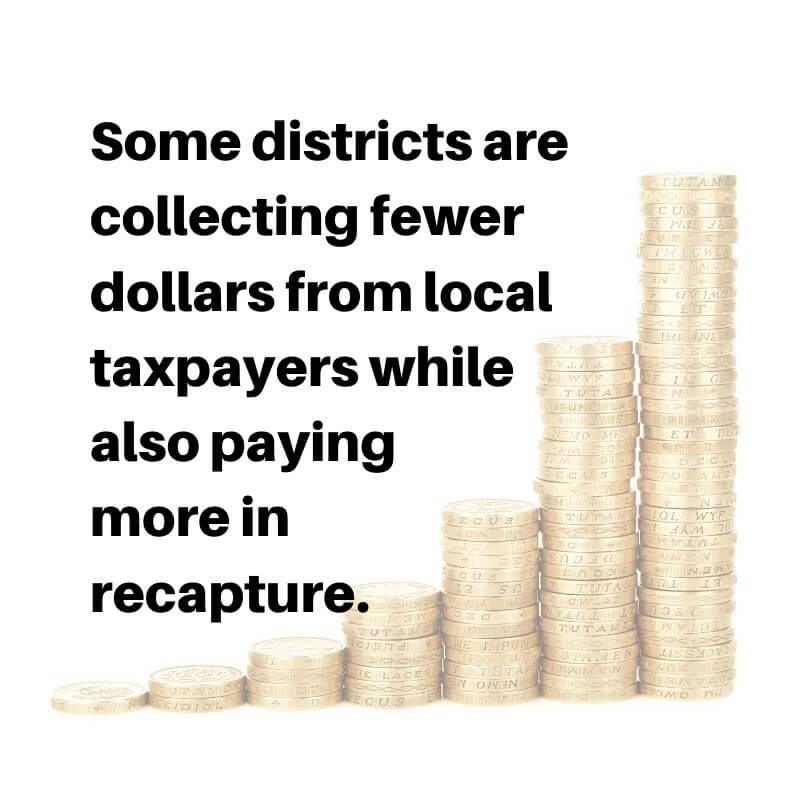
School finance reforms enacted in 2019 reduced recapture statewide
- Recapture (also known as “Robin Hood”) is the process by which the state takes some of the local property-tax revenue collected by school districts with relatively high property values per-student.
- The Legislature put $6.4 billion in new state revenue into schools though 2019’s House Bill 3. The bill also reduced local property tax rates.
- Both of these changes made education funding less reliant on local property taxes overall. When the system relies less on property taxes, statewide recapture decreases.
Recapture has diminished. It has not ended.
- The state will collect $1.9 billion in local property taxes through recapture over the next year, which is 29% less than the previous year, but still a significant amount.
- 141 school districts are still required to pay recapture this school year.
- While many school districts are sending away fewer dollars through recapture, they are also collecting fewer dollars from local taxpayers because property tax rates are now lower.
- Some districts are collecting fewer dollars from local taxpayers while also paying more in recapture.
Some districts will pay more in recapture this year than they did in the previous year.
- Preliminary data from the state shows that approximately 30 districts will pay more in recapture under the HB 3 reforms than they paid under the old law in the last school year. This number is expected to grow as more accurate information becomes available at the state level.
- The primary reason why districts may be paying more in recapture is because the Legislature now bases school funding on property values in the current year, rather than the certified prior year values.
- In other words, education funding last year was based on property values from the 2017-18 school year. Now it’s based on funding from the current year, 2019-20. In that two-year period, some districts have seen their property values increase considerably, causing their recapture obligations to increase even as most districts are paying less.
- Another reason why districts may be writing larger checks for recapture in the current school year is that the calculation for recapture has changed significantly in the school funding formulas. Previously, recapture was based on wealth per student in Weighted Average Daily Attendance (WADA). Now, recapture is based on how much “excess” property tax revenue a district collects that exceeds their per-student amount to which the formulas say the district is entitled.
The new dollars for schools in House Bill 3 come with strings — and uncertainty.
- The state’s increased investment in schools did not benefit all districts equally. Some districts saw significant funding increases, while others experienced modest increases, and still others will receive less funding under HB 3 than they would have received under the old law.
- Regardless of how much a district may have received, the Legislature enacted some new requirements that apply to all districts.
- The state is committed to further reducing local property-tax rates in the future, which could result in lessened recapture payments, but also create a school-funding hole that the state must fill with new dollars or with funding cuts.

